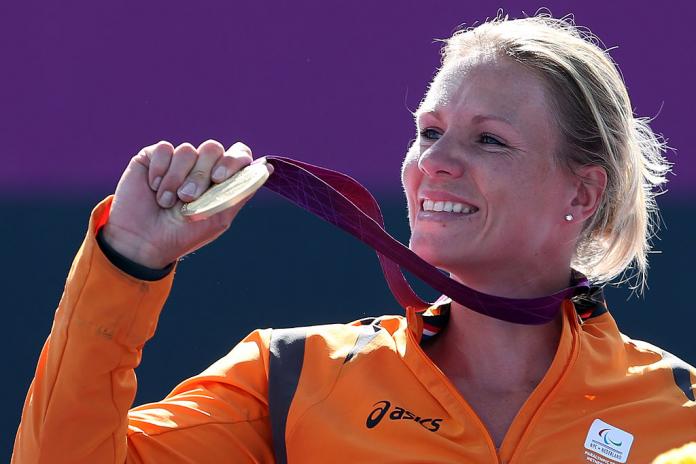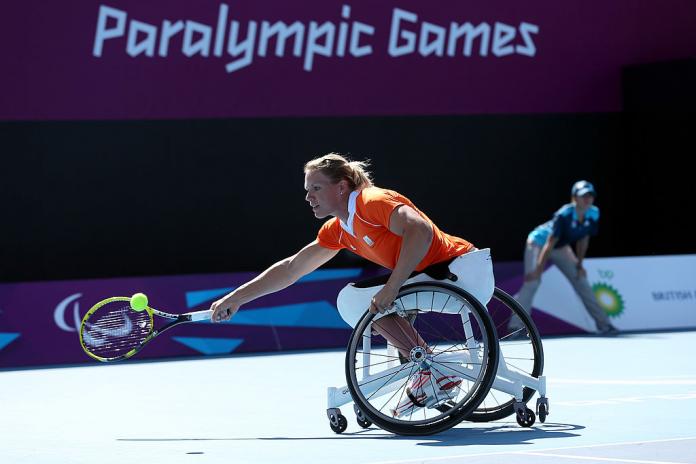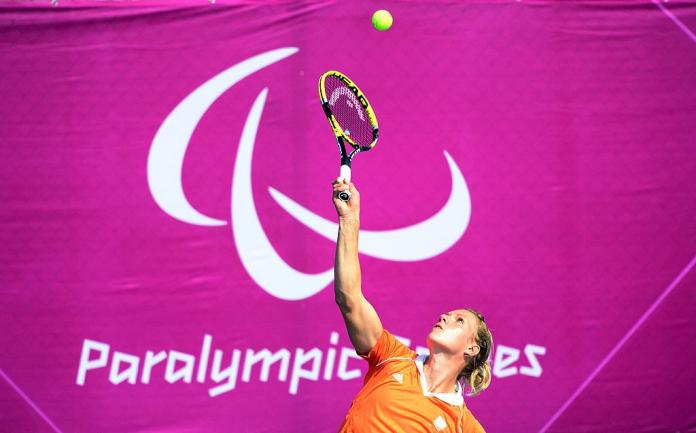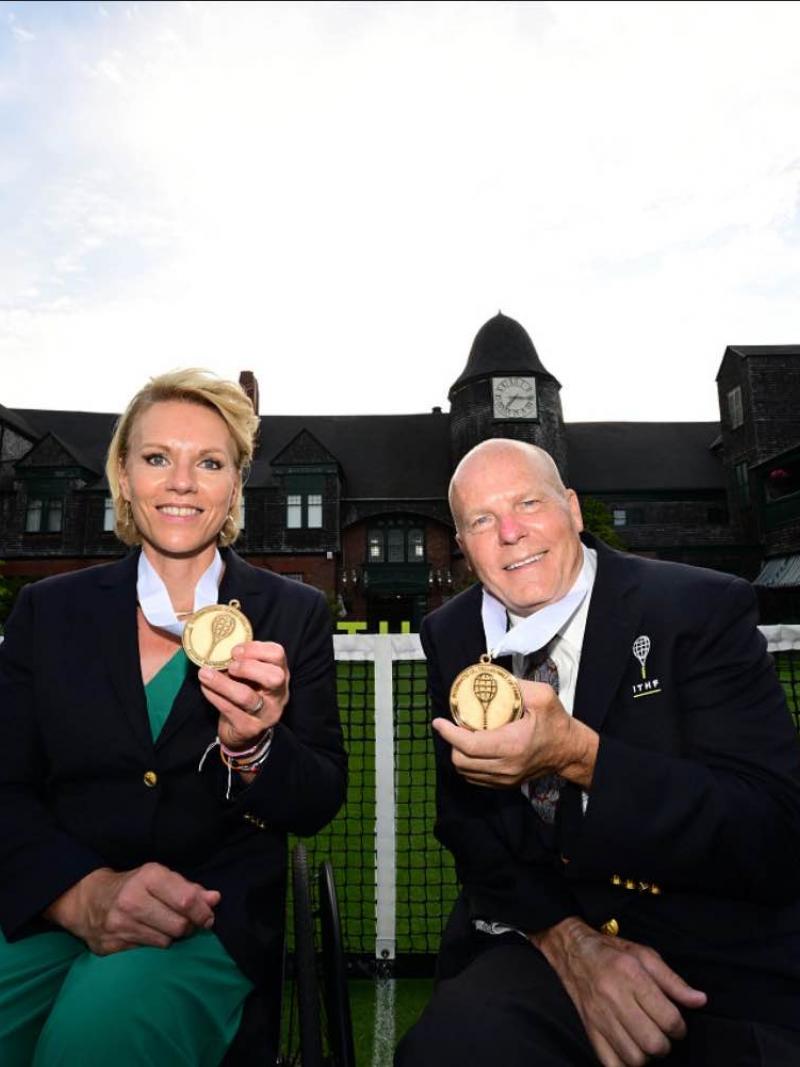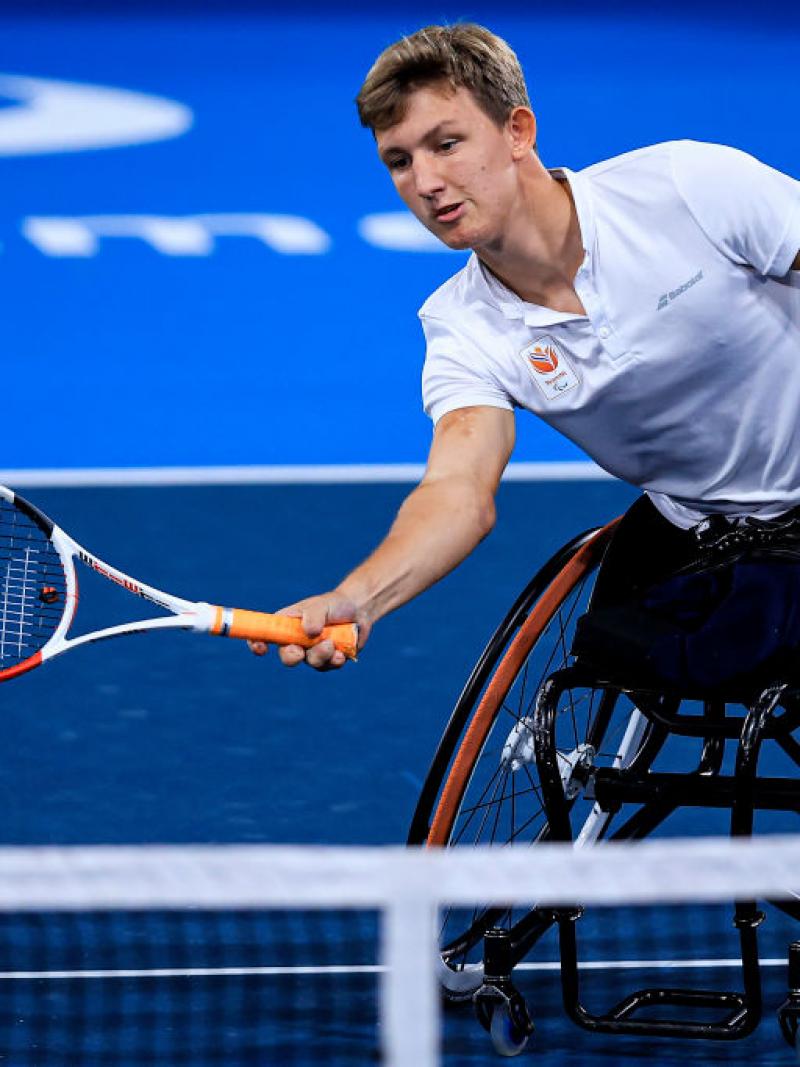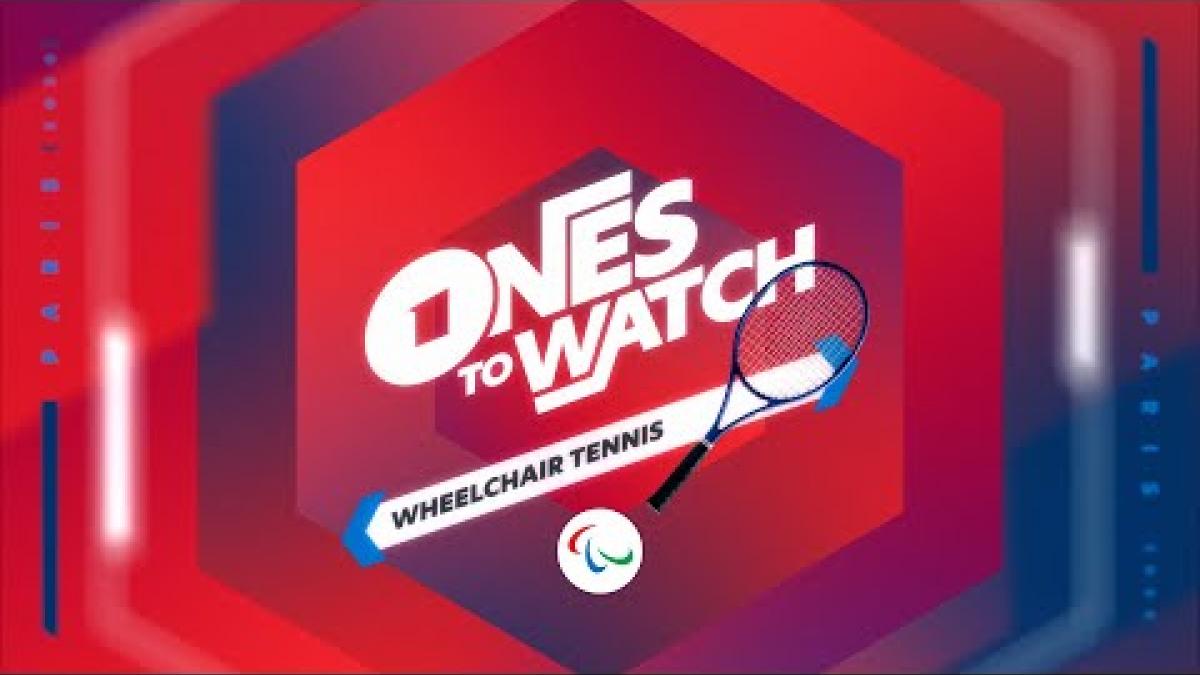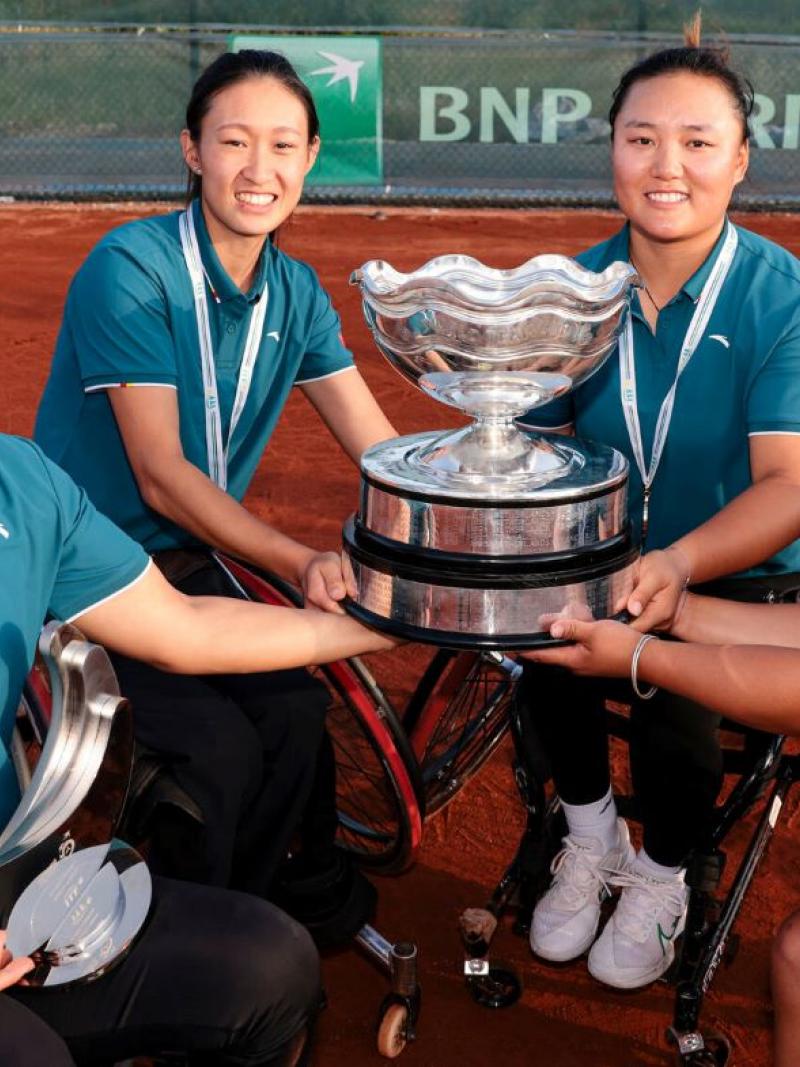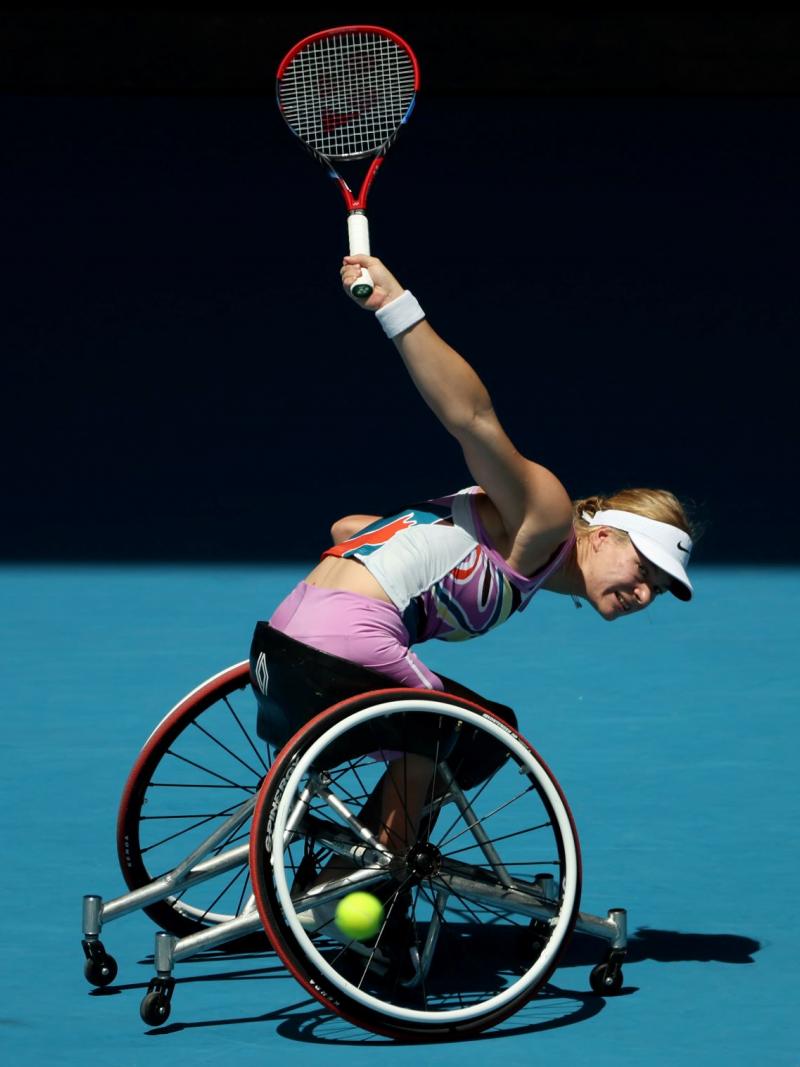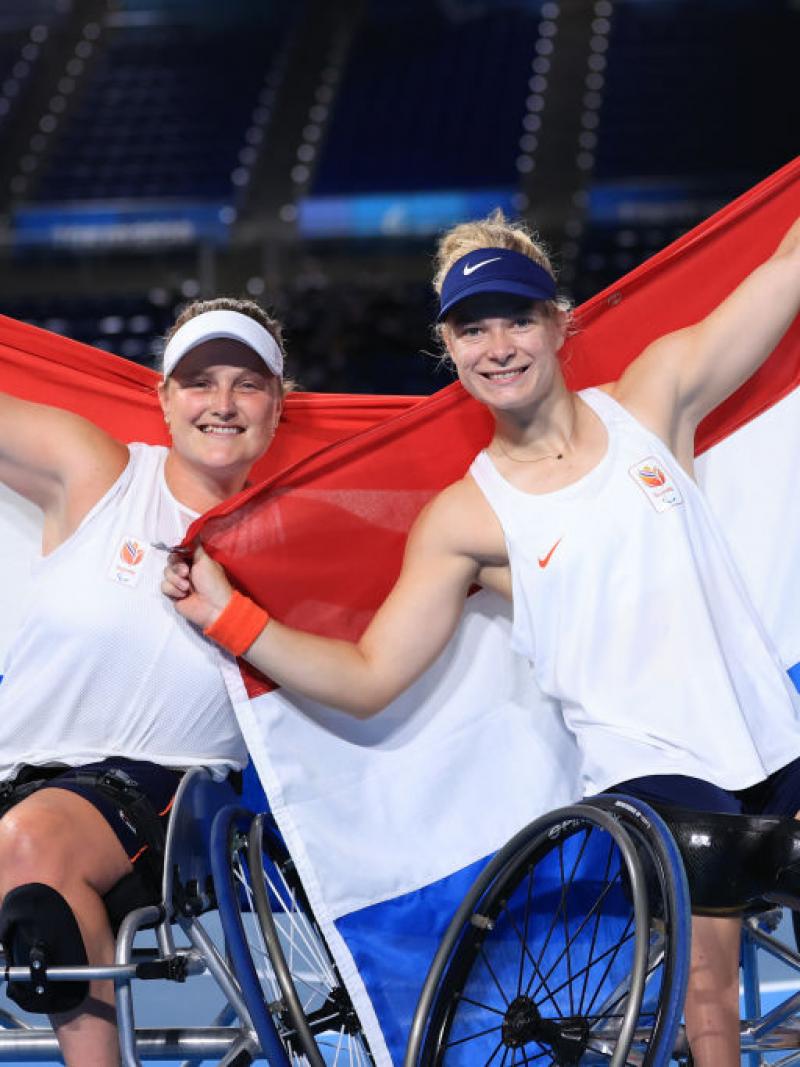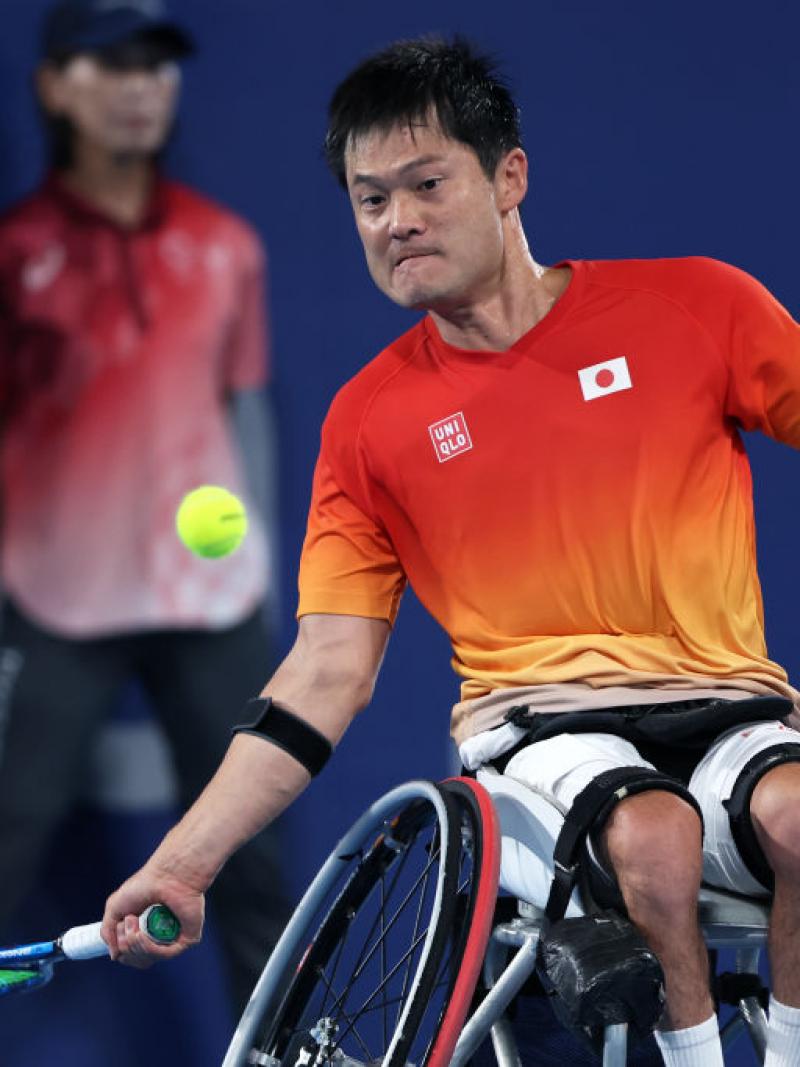Wheelchair tennis legend Vergeer on what it takes to win Paralympic gold
Ahead of the Paris 2024 Paralympics, seven-time wheelchair tennis champion Esther Vergeer reflects on her stunning career and shares the key to her success 31 Jul 2024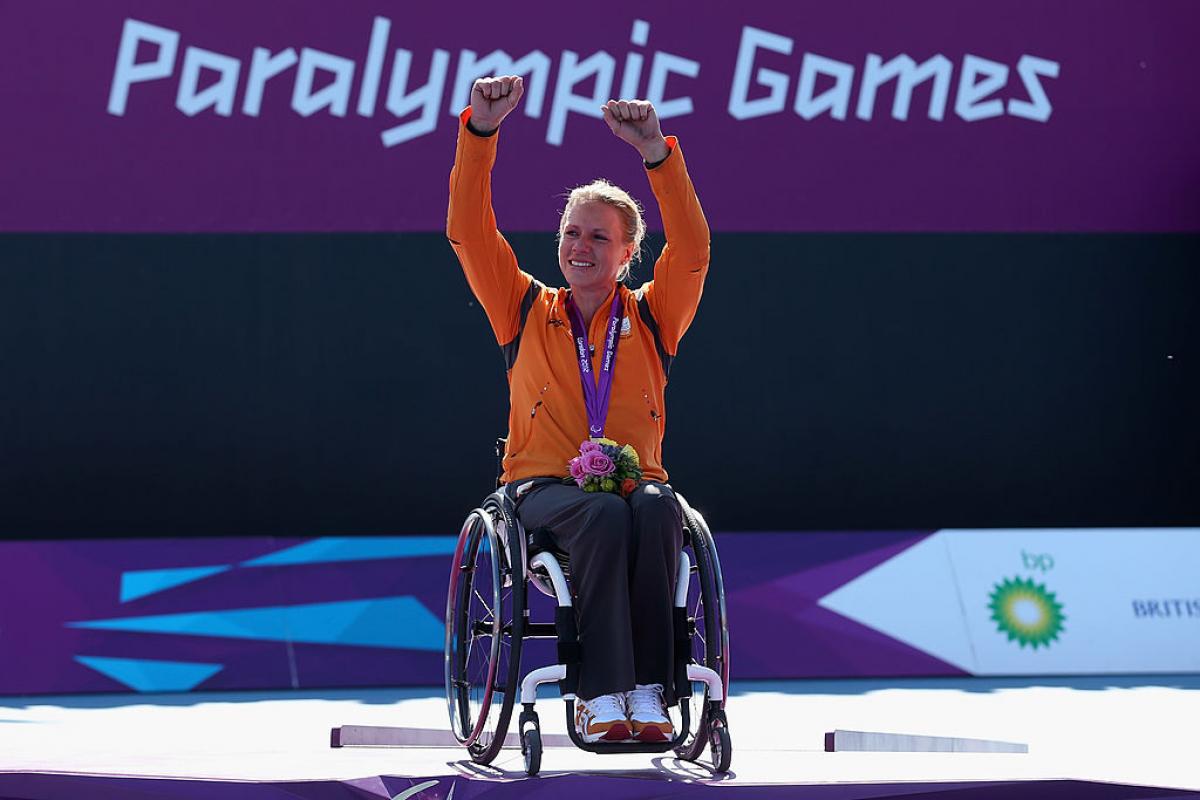
The peak of Para sport is a familiar place for the Netherland’s Esther Vergeer. The Dutch wheelchair tennis star is nothing short of a legend. Vergeer collected seven Paralympic golds across the Sydney 2000, Athens 2004, Beijing 2008 and London 2012 Games.
She claimed 43 career major tennis titles and set a mark untouched anywhere in tennis with her decade-long, 470-match winning streak. A run only ended by her own retirement in 2012. Her last loss came in January 2003 to Daniela di Toro.
Dit was echt een hele mooie dag! De team presentatie van @TeamNLtweets 🙌
— Esther Vergeer (@EstherVergeer) July 4, 2024
Het aftellen begint nu echt! Nog 55 dagen tot de Paralympische spelen. Het team begint zich te vormen. Wat een vertrouwen en wat een trots!!#TeamNL pic.twitter.com/MGTVtQk1wi
Journey to the Paralympic podium
Vergeer experienced gold many times. However, when asked of the most memorable moment from her Paralympic career, she recalls the moment she came closest to losing.
“All those four Games have their own special moments,” she said. “But I guess as an athlete, you want to have big fights and you want to have true competition. When you have a great match and a big fight, you have a big win.
“The one and only match that stands out is the gold medal final in Beijing.”
Vergeer was pushed to match point in a battle against Korie Homan of the Netherlands in 2008. It was the only time during her 470-match winning streak that Vergeer faced a match point.
However, Vergeer bounced back and pulled off a 6-2, 4-6, 7-6 win, forcing her countrywoman to settle for silver.
“I can go back to that moment. I can go back to the emotions that come with that moment. And so, I think that's important for me to have to pick that moment as the biggest in my Paralympic career,” Vergeer said.
Four games, seven golds
During her storied run, Vergeer won 120 tournaments and defeated 73 different athletes. She went through 95 matches without dropping a game and dropped 18 sets in total during the 10-year run.
Vergeer’s dominance did not just come because of her technique on the court. She had the fundamental skills and talent, however, her mental skills were as important as her rocket forehand or speed in the chair.
“I dedicated some of my time to mental strength and mental training. I went to sports psychologists and mental coaches. I dedicated my time to be able to become the most flexible, most resilient player out there because I knew that on the physical side there was competition coming,” Vergeer said.
“For instance, Korie Homan, who I faced in the Beijing final. I knew that physically, she could or would be stronger than me. I knew that I had to build other strengths on the tennis court, and that's why I decided to put more energy in that mental side,” she added.
“With exercise, breathing exercises, mental exercises, I just became a very stable athlete. I didn't really get nervous. I was able to get back on my feet whenever I got emotional on the court. I think that helped me prepare for matches but also during matches to get my act together.”
From the youngest of ages, it was tennis that empowered @EstherVergeer to become the greatest of champions.
— International Tennis Hall of Fame (@TennisHalloFame) July 23, 2023
She expressed her gratitude for the game and her steadfast mission to further its impact in her induction speech. #EnshrinementWeekend | @itftennis | @knltb pic.twitter.com/dcfzTp1NAm
Love of the Game
There was another key in her mental strength. It was love of the game.
When faced with potential burnout or the anger after a double fault, Vergeer found peace in her love of tennis. That affection provided a stabilising force.
“Sometimes it is hard to stay focused on the right things. I also had moments when I didn't enjoy tennis anymore because I felt too much pressure, or I didn't love the settings anymore. I didn't like the pressure.
“I'm glad I could find the motivation of why I started wheelchair tennis and why I'm there and why I love the game so much. I knew how to get back to that love every single time I got nervous. I needed to find a form or like a special trick to get back to that feeling of why you love the sport,” Vergeer said.
Vergeer went through her unreal run by taking it one day at a time. Her narrow focus on the present helped keep her love and drive alive as she became one of the greatest Para athletes of all time.
“Eventually I managed, and I don't know exactly how I managed it, but I managed to just stay on top of my game every single time and the outcome was a win. But that was never a goal itself. The outcome was whatever that day would bring. The focus was not on making this streak continue but more of beating the opponent,” Vergeer said.
The Dutch legend is done adding golds to her crowded trophy case. However, she is heavily involved in the sport and spearheads the growth of wheelchair tennis whenever she can.
Grand slam tournaments like Wimbledon expanded their wheelchair tennis tournament draws from eight to 16 in 2024, which shows the growth of the sport.
“It's very cool to see how Para sport has developed. And I remember that I participated in the Games in 2000 for the first time. I had to arrange my own clothing, there was not a lot of media attention
“And if you see how Para sports have developed in the Netherlands, how professional we became by having a total of inclusion and integration of Olympic and Paralympic athletes here at the training center,” Vergeer said.
100 days to go to the wheelchair tennis event at the @Paralympics! 😍
— ITF (@ITFTennis) May 22, 2024
Celebrating with all-time great Esther Vergeer explaining how Diede De Groot is a key role model for the sport 💛#Paralympics | #Paris2024 | #wheelchairtennis pic.twitter.com/PTqwYfG4Xl
Showcasing the sport in Paris
The sport is on the right path and the Paris 2024 Paralympics are shaping up to be the biggest yet. Vergeer may have hung up her racquet, but she admires those gearing up to compete later this summer.
She knows just making it to the Games is a feat in itself. It takes hours of training, development and dedication to reach the top.
“It's a journey that is a lot of work. It's hard work. It's frustration, it’s dedication, and then eventually you will be good enough or you will have the right ranking. Or you will have the right times or distances and then you qualify for the Paralympics.”
Discover more about the 22 sports in the Paris 2024 Paralympic sports programme






